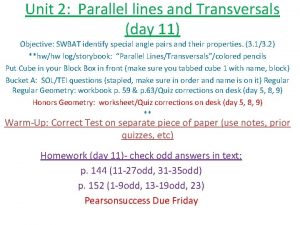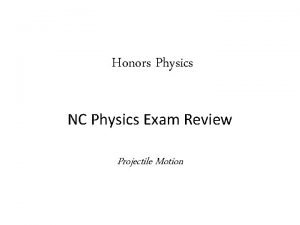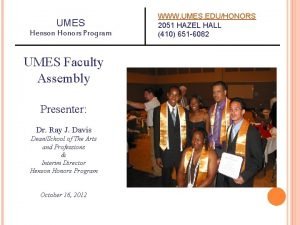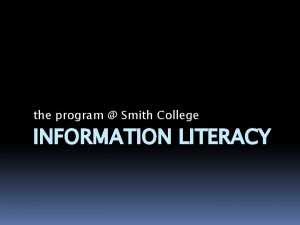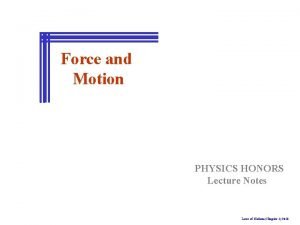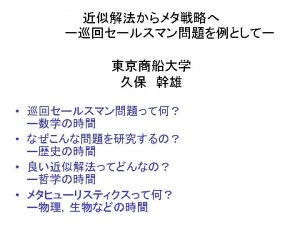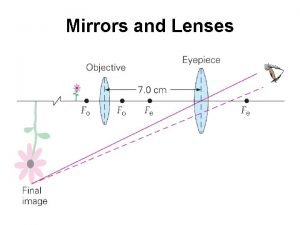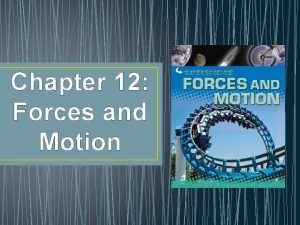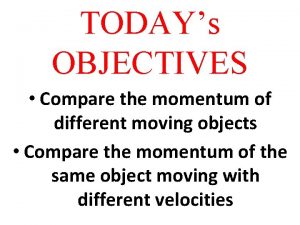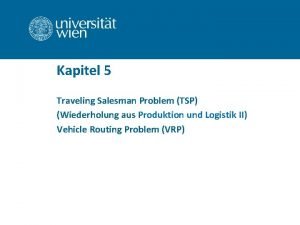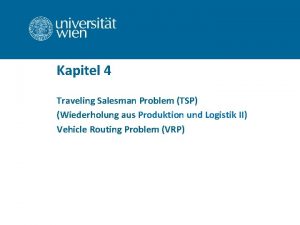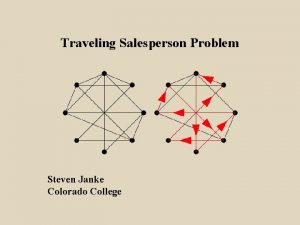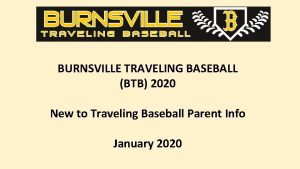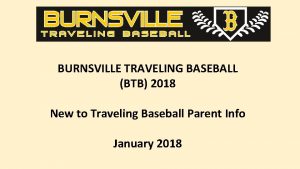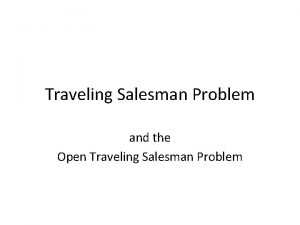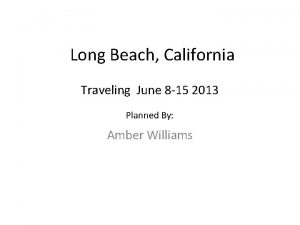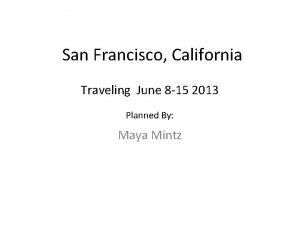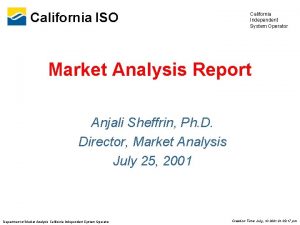Honors Analysis Mr Manker is traveling to California














































- Slides: 46

Honors Analysis

� Mr. Manker is traveling to California. He drives at a constant pace: 100 miles the first two hours 210 miles the next three hours 240 miles the next four hours Create a graph showing his distance and time

� What is the domain of the function? The range? � Write the equation of the function for distance (after time t hours) using piecewise notation � What is Mr. Manker’s rate of change (speed) on the interval (0, 2)? � What is his speed on the interval (2, 5)? � What is his speed on the interval (5, 9)? � What aspects of this scenario aren’t realistic? Why?

� Write the domain and range using interval notation:

� Give the domain and range using interval notation:

� The post office offers flat-rate mailing of packages: $1. 50 for a package weighing less than 4 oz, $2. 50 for a package weighing 4 oz to less than 8 oz, and $3. 50 for a package weighing 8 oz to 12 oz. � Graph this function. Is it continuous? Explain.



A t-shirt company sells t-shirts for $8 apiece if five or fewer are sold, $6 apiece if 5 -10 are purchased, or $5 apiece if more than 10 are purchased. Why is this considered to be a DISCRETE function? Sketch a graph.




Solve for k so that function f is continuous:

� Solve for k so that f is continuous:

Jose left the airport and traveled toward the mountains. Kayla left 2. 1 hours later traveling 35 mi/hr faster in an effort to catch up to him. After 1. 2 hours Kayla finally caught up. Find Jose’s average speed.

� Two cars 276 miles apart start to travel toward each other. They travel at rates differing by 5 mi/hr. If they meet after 6 hours, find the rate of each.




A boat traveled 336 miles downstream and back. The trip downstream took 12 hours. The trip back took 14 hours. What is the speed of the boat in still water? What is the speed of the current?













� About how fast is the ball going after 1 sec? � About how fast is it going at 3 sec? Are there multiple possible speeds? � About how fast is it going at 8 seconds?


� The rate of change of a function at an INSTANT in time. � Example: The speed on the speedometer of your car at a certain moment in time. � Instantaneous rate of change is also the slope of the tangent line drawn to a point on a curve. In calculus, it is known as the DERIVATIVE!

� Evaluate, analyze, and graph piecewise functions � Determine domain and range of a function using the graph � Determine values that make piecewise functions continuous � Solve distance = rate * time word problems � Calculate average rate of change of a function from a table or function � Estimate instantaneous rate of change of a function

� Evaluate values using the Greatest Integer Function � Simple modular arithmetic problems






� Estimate the area under the curve between x = 0 and x = 3 using n = 3 trapezoids.



Solve distance = rate * time word problems (use chart setup!) � Calculate average rate of change of a function from a table or function � Estimate instantaneous rate of change of a function � Estimate definite integrals by counting blocks on a graph (WATCH OUT FOR GRAPH SCALE!!) � Calculate definite integrals by calculating areas (constant functions, linear functions, etc. ) � Estimate definite integrals (area under the curve) using the Trapezoidal Rule (may be given function OR a table of values – always best to draw a graph first!!) � Determine units for rate problems (y unit divided by x unit!) � Determine units for integral/area problems (x unit times y unit!) �
 Creighton honors program
Creighton honors program Aces james scholar
Aces james scholar Deped order no. 36 s. 2016
Deped order no. 36 s. 2016 Ucsb letters and science honors
Ucsb letters and science honors Physics semester 1 review
Physics semester 1 review Honors biology ecology test
Honors biology ecology test 4.05 honors economics
4.05 honors economics Quadrilateral test review
Quadrilateral test review Honors earth science
Honors earth science Kuei honors chemistry
Kuei honors chemistry Mrs blueprint
Mrs blueprint Hilton honors military program
Hilton honors military program Honors project
Honors project Honors biology properties of water lab
Honors biology properties of water lab Honors geometry parallel lines and transversals worksheet
Honors geometry parallel lines and transversals worksheet Tulane honors program
Tulane honors program Chapter 3 geometry test
Chapter 3 geometry test Precalculus chapter 1
Precalculus chapter 1 Vyi physics
Vyi physics Honors biology unit 4 test
Honors biology unit 4 test Smc scholars classes
Smc scholars classes Chemistry unit 4 review answer key
Chemistry unit 4 review answer key Golden opulence sundae
Golden opulence sundae Math 3 honors
Math 3 honors Chem
Chem Honors chemistry summer assignment
Honors chemistry summer assignment Ft pierce central
Ft pierce central Mahurin honors college
Mahurin honors college Bond order formula
Bond order formula Honors algebra 2 final exam
Honors algebra 2 final exam Umes honors program
Umes honors program Latin honors smith college
Latin honors smith college Pathfinder shooting star
Pathfinder shooting star Physics honors notes
Physics honors notes Travelling is very popular nowadays.
Travelling is very popular nowadays. Traveling salesman problem
Traveling salesman problem This diagram indicates that
This diagram indicates that Power of lens formula
Power of lens formula Traveling matte
Traveling matte To wait seemed foolish when decisive action was required
To wait seemed foolish when decisive action was required Bitonic euclidean traveling salesman problem
Bitonic euclidean traveling salesman problem Topic traveling around viet nam
Topic traveling around viet nam Uniform layer haircut
Uniform layer haircut Which universal force can repel as well as attract?
Which universal force can repel as well as attract? A 2240 kg car traveling to the west
A 2240 kg car traveling to the west Traveling salesman problem lösungsverfahren
Traveling salesman problem lösungsverfahren Traveling salesman problem beispiel
Traveling salesman problem beispiel














